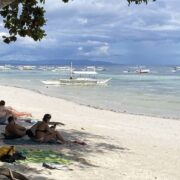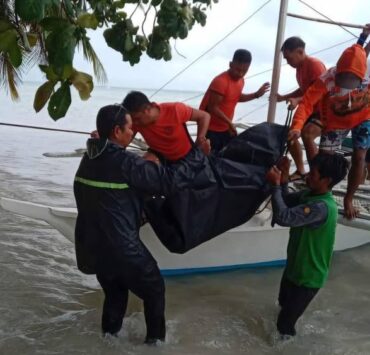Catholic Church wary over MGB move to allow sand mining in Eastern Samar

TACLOBAN CITY—The Diocese of Borongan has expressed concerns over a government notice that would open three localities in Eastern Samar to large-scale sand mining.
The diocese, through Fr. James Abella, director of its Commission on Social Action, Justice and Peace, strongly opposed a notice of the Mines and Geosciences Bureau in Eastern Visayas (MGB-8) that it was accepting mining applications for industrial sand and gravel permits in the provincial capital Borongan City and the towns of Hernani and General Macarthur.
Abella said the proposed operations would not bring any benefits to the communities and would instead lead to environmental destruction, with residents directly bearing the consequences.
He cited the environmental degradation caused by existing mining operations on the islands of Homonhon and Manicani, both part of Guiuan town in Eastern Samar.
“Our fear is that we will see similar destruction as on Homonhon and Manicani islands where mining activities have severely damaged the environment,” Abella said in an online interview on Saturday.
“I find this very alarming. I pray and appeal to the people and officials of these towns and our province to stand firm and refuse to allow such devastating environmental destruction to take place,” he added.
On June 4, the region’s MGB, an attached agency of the Department of Environment and Natural Resources (DENR), posted a notice regarding mining applications covering more than 3,784.98 hectares in Hernani and General Macarthur, and 2,759.79 ha in Borongan City.
No approval yet
Sought for comment, MGB-8 Director Glenn Noble clarified that the notice did not mean that mining operations in parts of Eastern Samar would immediately begin.
He said the notice pertained to the denial of an earlier mining application and the subsequent opening of these areas for new applications, as “part of the due process after denying a mining application over a certain area.”
“It informs the public that the area covered by the denied application is now open to new applications, but this does not mean that any mining operation is already allowed,” he said in a private message on June 7.
According to Noble, the notice starts a 15-day period from the date of posting during which interested parties may file new applications that still have to undergo evaluation.
He emphasized that the filing and acceptance of a new application does not equate to automatic approval.
At present, there are four mining operators on Homonhon Island: Min-Met Resources, Verum Terra Geosciences Inc., TelcIron Resources Inc. and Emirs Mineral Resources.
These companies extract nickel and chromite on the historic island where Portuguese explorer Ferdinand Magellan and the Spanish soldiers first landed in the country over 500 years ago.
Water supply threat
On Manicani Island, Hinatuan Mining Corp. is the sole operator, extracting nickel ore.
The Diocese of Borongan, along with environmental advocates and local residents, has long expressed strong opposition to these mining activities, citing threats to the environment, health and local livelihoods.
“We cannot afford to stand by and watch our environment be ravaged. It’s a matter of urgent action and unwavering resolve,” Abella said.
Officials from five barangays in Borongan—Calicoan, Campesao, San Gabriel, San Jose and Siha—have formally declared their opposition to the planned mining operations.
In a recent joint resolution, the barangay officials, whose communities lie along the Loom River, a major water source in Borongan, urged city and provincial leaders to reject any large-scale sand quarrying in the area, citing environmental risks and potential harm to their water supply.
“Mining operations could disrupt the delicate balance of the ecosystem, harm our water resources, and jeopardize the livelihoods of our barangay residents,” read the resolution submitted to the city government of Borongan and the DENR.

















